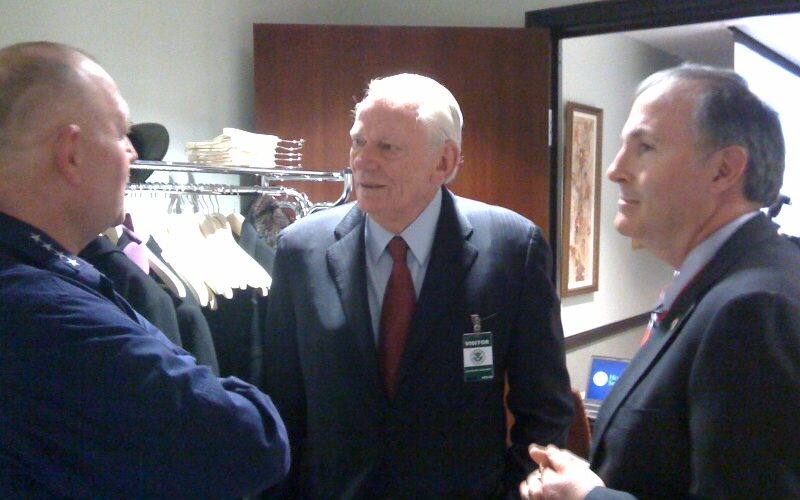Ode To Southwest’s Herb Kelleher – Top 5 Things That Changed Aviation
On Thursday, January 3rd one of the biggest commercial aviation pioneers, Herb Kelleher passed away. Herb is the person behind Southwest – one of the most successful low-cost airlines in the world. Creating a unique work environment, where he and employees around him would take themselves lightly yet maintain the highest standard of professionalism. That is why the Department of Transportation ranks Southwest number one in customer satisfaction – the airline receives the least amount of customer complaints since 1987. Kelleher was even involved in such endeavors as “Malice in Dallas”. In 1992, when Southwest started using the motto “Just Plane Smart” a company called Stevens Aviation threatened to sue Southwest because their motto was “Plane Smart”. But instead of a long and grueling trial process, the two CEOs decided to settle their differences in an arm wrestling match. Herb Kelleher lost the match, but the CEO of Stevens Aviation let Southwest use the slogan after Herb donated a substantial sum to charity.
This perfectly showcases that Herb Kelleher was a leader like no other – but there are more reasons why Herb‘s peers respected him. To honor his legacy, we would like to present the top 5 things that Herb Kelleher influenced in the world of commercial aviation.
5. Employees first – Customers second
Many businesses around the world always emphasize that their customers are the most important people to them. But not to Herb Kelleher. And his famous quote reflects that: “Your employees come first. And if you treat your employees right, guess what? Your customers come back, and that makes your shareholders happy. Start with employees and the rest follows from that.“
4. Low fares. Nothing to hide. That’s Transfarency.
That is the current slogan of Southwest. And that philosophy has followed the company since the day that Herb established it. Even though it was not the first low-cost airline in the US, but is the only one who has managed to survive all the economic turmoil throughout the years. And not only survive, but thrive – Southwest carries the most domestic passengers and is also the largest low-cost airline in the world.
3. A unique boarding process
Southwest boards their passengers by grouping them under letters A, B and C and gives them a random number from 1 to 60. Although not highly adapted around the world, it is regarded as one of the fastest and efficient ways on how to board an aircraft. Mythbusters proved that this is the fastest method to board an airplane in 2012.
2. Efficiency like no other.
Southwest was the first carrier to use only one type of aircraft in its fleet – the Boeing 737. Thus, reducing the time it took to maintain its fleet and train its pilots, engineers and cabin crew members. Another proof of Southwest‘s efficiency is the quick turn-around times. The planes would depart the airport as quickly as possible, as soon as it arrived from another flight. For the simple reason that the more time the aircraft spends in the air – the more profit you can squeeze from it. A Southwest commercial from the 1980s showcases that cheekily: https://www.youtube.com/embed/gnFfFRDMd_0
1. Secondary Airports
If you fly on a Southwest, Ryanair, easyJet or any other low-cost carrier, you usually land at a secondary airport. For example, Chicago Midway instead of Chicago O‘Haare, Paris Orly instead of Charles De Gaule and so on. Why? It is simply cheaper. Even though Southwest is slowly shifting away from this strategy, ultra-low-cost airlines such as Spirit, Allegiant Air in the United States or Ryanair and Wizz Air in Europe do still use this strategy. For this reason, their tickets remain as cheap as they are. And who influenced this? Herb Kelleher. And we thank you, Herb. You‘re someone who inspired many people all around the world. You will be dearly missed by all of us.

